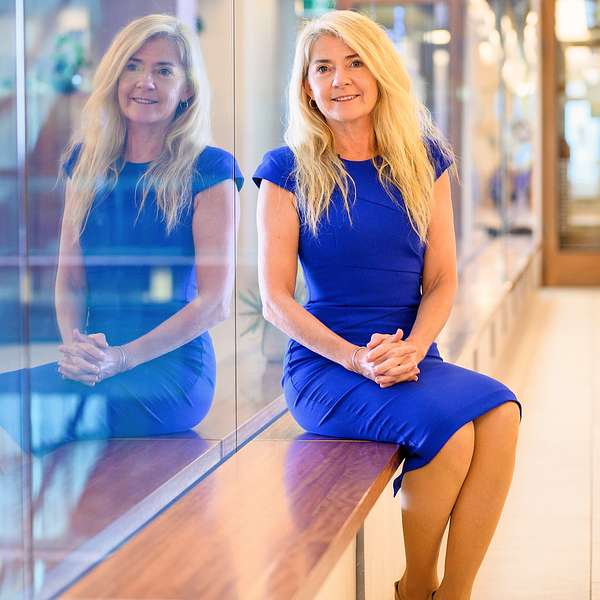
THRIVING MINDS PODCAST
Do you want to learn how to build resilience, boost your cognitive performance, and achieve mental agility? Then it's time to discover the exciting world of brain health and fitness with Thriving Minds. Hosted by renowned neuroscientist Professor Selena Bartlett, Thriving Minds is a podcast dedicated to exploring the latest advances in brain science education.
With decades of experience studying addiction, stress, and mental health, Professor Bartlett is a true expert in her field. And she's on a mission to empower people to take control of their mental and physical well-being. So what makes Thriving Minds so unique?
It's not just about theory – it's about practical tips and simple tools that you can use to improve your brain health and fitness right now. From understanding how stress wires the brain, the power of cold exposure, nutrition and exercise and connection.
Thriving Minds is also a deep dive into cutting-edge brain science and digital technology. From neuroplasticity to brain imaging, Professor Bartlett and her team are at the forefront of this rapidly evolving field. They're exploring the latest research and innovations and sharing their insights with listeners around the world.And the best part?
Let's make brain health everyone's business. They're inspiring people to take action and create a culture of mental fitness, where people prioritise their brain health as much as their physical health.
Tune in to the podcast and discover the secrets of brain health and fitness. Whether you're looking to boost your cognitive performance, reduce stress, or improve your overall well-being, Selena and her team are here to help you thrive.
The opinions expressed in the podcast are Selena Bartlett's personal opinion and her guests. They are for general informational purposes only and do not constitute the practice of medicine, nursing, psychology or other professional health care services, including the giving of medical advice, and no doctor/patient relationship is formed. The opinions in the podcast do not reflect the opinion of Queensland University of Technology.
THRIVING MINDS PODCAST
Episode #195. Adolescence & Authority: What the Netflix Series Gets Right About Our Kids, Nicole Runyon, Psychotherapist, parent coach, Author Free to Fly.
📌 Key Insight:
Modern parenting often prioritises convenience and safety over challenge and growth. But kids need opportunities to struggle, try, fail, and try again to build the emotional muscles they’ll need for life.
“We’re putting 3-year-olds on iPads but not letting them zip up their coats.” – Nicole Runyon
Let’s flip the script—and raise a generation built on connection, competence, and confidence.
In this gripping conversation, we’re joined by Nicole Runyon, LMSW—psychotherapist, parent coach, and author of Free to Fly: The Secret to Fostering Independence in the Next Generation—to unpack the Netflix series Adolescence and the uncomfortable truths it holds up to modern parenting.
Nicole brings over two decades of experience in child and adolescent mental health and a rare ability to help adults step inside the minds of today’s kids. Together, we dive into the deeper layers of Jamie’s story and what it reveals about a world where kids grow up online, alone, and often unseen.
We explore:
- Why this isn’t just a mental health crisis—it’s a crisis of adult power
- How convenience culture is sabotaging childhood
- The dark role of algorithms, and where adult responsibility still lies
- The myth of safety behind closed doors
- Why therapy alone can’t fix what community and connection must
- Practical steps for adults to reclaim authority in a digital world
- And what kids actually need—beyond screens, labels, or diagnoses
Nicole’s insight is both provocative and empowering. If you’re ready for a conversation that moves beyond blame and into bold, practical change—this episode is for you.
Top 5 Foundations for Healthy Brain and Child Development (0–18 years)
- Attachment and Safety (0–18 months)
- Prioritise bonding, physical affection, eye contact, and consistent caregiving.
- Love, hugs, and a safe environment are essential to wire the brain for trust and connection.
- Will and Authority (18 months–3 years)
- Respect toddlers’ emerging independence while setting firm boundaries.
- Let them try things on their own, even if frustrating, and allow space for tantrums. This builds frustration tolerance and emotional regulation.
- Autonomy and Independence (3–5 years)
- Encourage self-help skills like dressing, zipping coats, and managing tasks.
- Let children take risks and experience challenge—don’t over-index on safety.
- Social-emotional learning and confidence emerge from doing, not avoiding struggle.
- Confidence and Competence (5–12 years)
- Confidence grows by overcoming hard things—not from trophies or rewards.
- Avoid constant praise and incentives; instead, promote perseverance and self-worth through effort and resilience.
- Identity Development (12–18 years)
- A secure sense of self is built on the foundation of earlier stages.
- Without real-world confidence, teens look to social media influencers to tell them who they are.
- This can lead to distorted identity formation and vulnerability to mental health trends online.
📌 Key Insight:
Modern parenting often prioritises convenience and safety over challenge and growth. But kids need opportunities to struggle, try, fail, and try again to build the emotional muscles they’ll need for life.
“We’re putting 3-year-olds on iPads but not letting them zip up their coats.” –
Subscribe and support the podcast at
https://www.buzzsprout.com/367319/supporters/new
Learn more at www.profselenabartlett.com